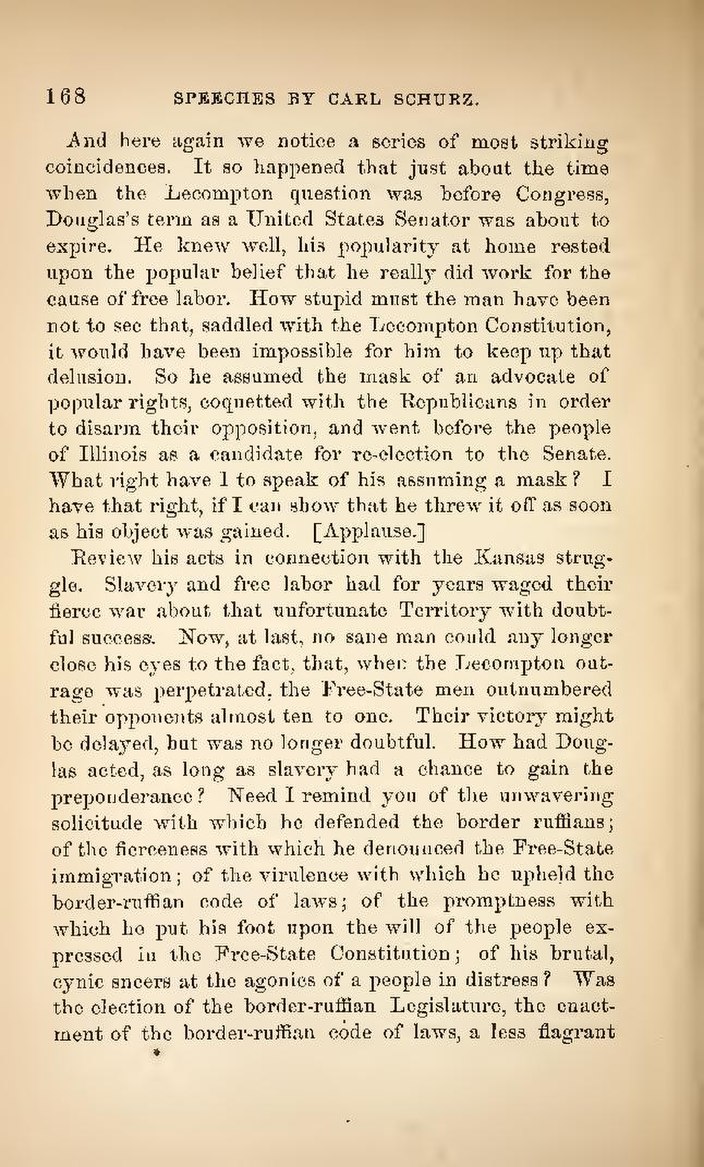And here again we notice a series of most striking coincidences. It so happened that just about the time when the Lecompton question was before Congress, Douglas's term as a United States Senator was about to expire. He knew well, his popularity at home rested upon the popular belief that he really did work for the cause of free labor. How stupid must the man have been not to see that, saddled with the Lecompton Constitution, it would have been impossible for him to keep up that delusion. So he assumed the mask of an advocate of popular rights, coquetted with the Republicans in order to disarm their opposition, and went before the people of Illinois as a candidate for re-election to the Senate. What right have I to speak of his assuming a mask? I have that right, if I can show that he threw it off as soon as his object was gained. [Applause.]
Review his acts in connection with the Kansas struggle. Slavery and free labor had for years waged their fierce war about that unfortunate Territory with doubtful success. Now, at last, no sane man could any longer close his eyes to the fact, that, when the Lecompton outrage was perpetrated, the Free-State men outnumbered their opponents almost ten to one. Their victory might be delayed, but was no longer doubtful. How had Douglas acted, as long as slavery had a chance to gain the preponderance? Need I remind you of the unwavering solicitude with which he defended the border ruffians; of the fierceness with which he denounced the Free-State immigration; of the virulence with which be upheld the border-ruffian code of laws; of the promptness with which he put his foot upon the will of the people expressed in the Free-State Constitution; of his brutal, cynic sneers at the agonies of a people in distress? Was the election of the border-ruffian Legislature, the enactment of the border-ruffian code of laws, a less flagrant
